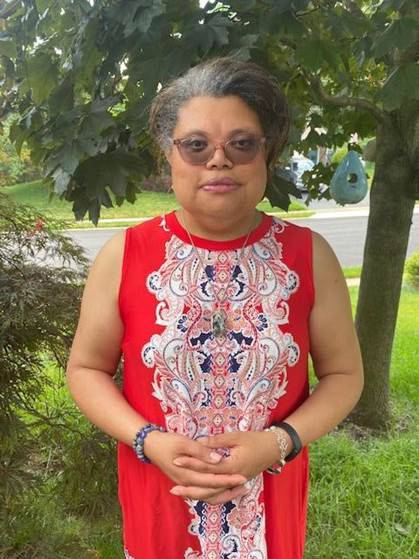
Cherise Pollard Named New Director of WCU's Poetry Center
July 8, 2020
Dr. Cherise Pollard has been named Director of the West Chester University Poetry Center.
“This is wonderful news,” said Jen Bacon, Dean of the College of Arts and Humanities, noting that Pollard brings 20 years of experience as a poet, scholar, critic, and teacher to the position. She will begin her post this August.
Dr. Pollard began her career at WCU in 1999, specializing in African American historical novels, African American literary theory and criticism, the Black Arts Movement, womanist and feminist criticism and theory, and twentieth-century American poetry and poetics. After having completed a series of fellowships at Cave Canem: A Home for Black Poetry, she published her first poems, “whateva you do” and “Call and Response.”
During her time at West Chester, Dr. Pollard has organized numerous public readings and craft talks, bringing poets like Natasha Trethewey to campus the year that she won the Pulitzer Prize. Dr. Pollard has regularly attended the WCU Poetry Conference, and she was a founding board member for Poetry by the Sea, responsible for their advertising and branding strategy, co-designing their conference program, and assisting with the training and management of conference staff.
Dr. Pollard has also read her own works many times, on campus and off, most recently at the Virginia Center for the Creative Arts Residency in Poetry, which she completed a fellowship in October of 2019. Dr. Pollard’s 2016 poetry collection, Outsiders, was the winner of the 2015 Susan K. Collins/Mississippi Valley Chapbook Contest. This year, she and two co-editors (Daniela Buccili and Wendy Scott) will see the publication of Show Us Your Papers! An Anthology of 80 Poets.
“Poetry unites,” wrote Pollard in her position application, and her vision for the Poetry Center includes a plan to encourage even greater participation from students at the annual poetry conference. She was thrilled to learn that the conference was moving into April and to National Poetry month so that it could build on that energy while also meeting the needs of students who may not be available in the summer. “Poetry,” says Pollard, “can help people understand what they’ve just been through. People articulate their lives through poetry… Post-COVID, when our communities come back together, I think language is going to be the way we start to build ourselves back up to see who we are.”
